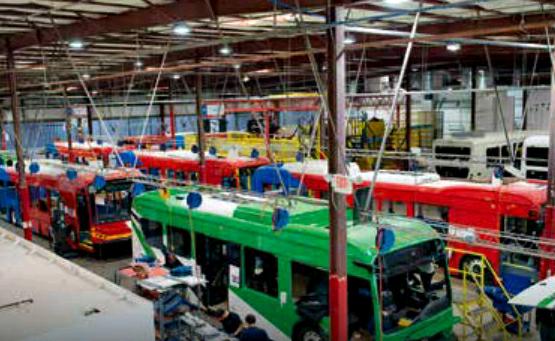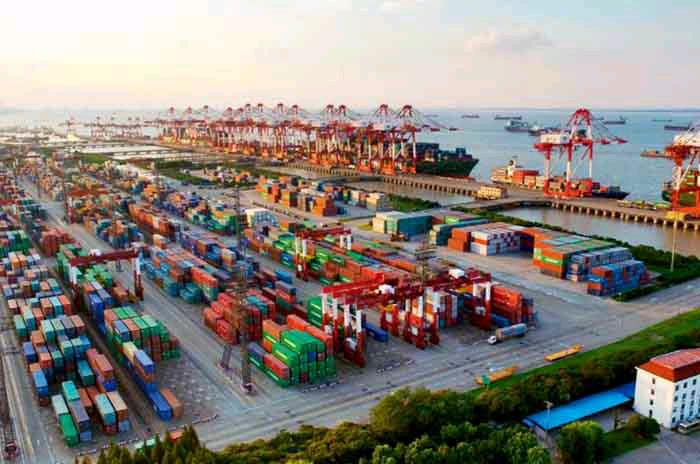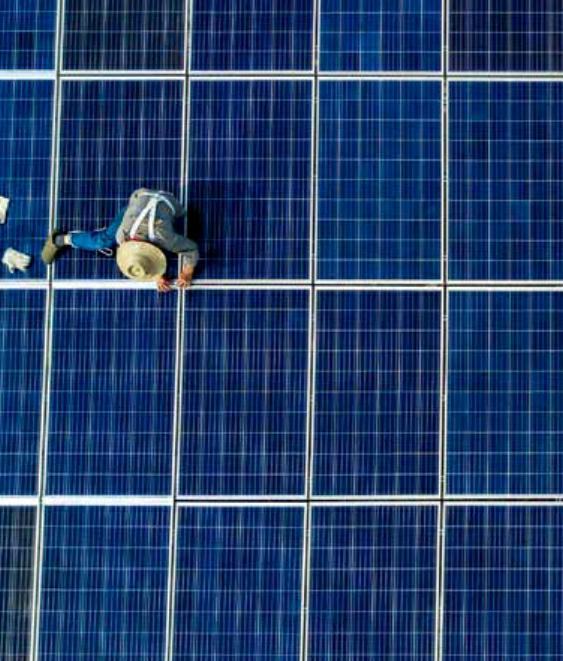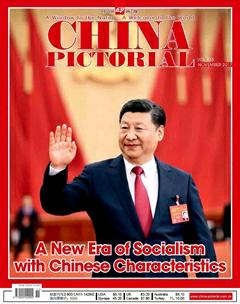Chinese Growth Fueling Global Economy
by+Chen+Qiqing
Since the 18th National Congress of the Communist Party of China (CPC) in 2012, the CPC Central Committee with General Secretary Xi Jinping at its core has followed the general guideline of maintaining steady progress based on a reasoned judgment that Chinas economic development has entered its“new normal” phase. The committee has put forth the concept of innovative, coordinated, green, open and shared development and promoted supply-side structural reform. Under such guidelines, Chinas economy has constantly made achievements, benefiting not only the Chinese people, but also the global economy.
Chinas Economic Growth Promotes World Economy
China is now the most powerful engine of the world economy. At current prices, in 2016, Chinas GDP reached US$11.2 trillion, accounting for 14.9 percent of the global total, second only to the United States. But Chinas contribution to the growth of the world economy greatly exceeded the largest economy. Statistics from the World Bank show that from 2013 to 2016, China contributed an average of 31.6 percent of global economic growth, higher than the U.S., the Eurozone and Japan combined. And in 2016, the figure reached as high as 34.7 percent, driving the world economy up 0.8 percent, solidifying Chinas status as the locomotive of the global economy.
China is making new contributions to global technological innovation. With a new round of industrial revolution coming, innovation has become the biggest driving force for the world economy. Throughout history, China has remained a standout in innovation, represented by its Four Great Inventions—papermaking, printing, gunpowder and the compass. In modern times, the country became dim in the field, but in recent years, China has revived and become one of the leading countries in innovation in fields like quantum communication, super computers and power transmission. Whats more, Chinas “four new great inventions”—high-speed railway, Alipay, online shopping, and bike sharing—are bringing great changes to peoples lives. The world is shifting from C2C (Copy to China) to 2CC (To Copy China).
Chinas Development Creates Opportunities for the World
Almost four decades after its implementation of the reform and opening-up policy in the late 1970s, China has become the worlds second largest economy, second largest trading nation, largest exporter, second largest importer and second largest overseas investor. China now certainly has the capabilities to create huge development opportunities for the world.endprint
China provides a vast market for the world. As more and more Chinese people become middle-class, consumption will rise significantly. Already the largest buyer of bulk commodities, China will offer a massive potential market for countries rich in resources.
Global capital can tap Chinas rapid development to reap profits. Since its reform and opening up, the country has absorbed US$1.7 trillion of foreign investment. And since the 18th CPC National Congress, China has begun to promote a more open economy by setting up pilot free trade zones, introducing the management model of pre-establishment national treatment (PENT) with a negative list, opening more sectors and cutting the limits for the entry of foreign funds.
Chinese enterprises have ventured abroad to invest, which has resulted in growth opportunities for local residents. From 2013 to 2016, Chinas non-financial overseas direct investment reached US$491.5 billion, up by 21.6 percent year on year.
China has always pursued shared benefits. According to authorities, in the next five years, the countrys total imports are expected to reach US$8 trillion, foreign investment US$600 billion, overseas investment US$750 billion and outbound trips 700 million. These figures foretell a bigger market, more capital and better revenue opportunities for countries around the world.
Chinese Plans Facilitate World Development
Since the 2008 international financial crisis broke out, the global economy has remained sluggish. It has been difficult for the world to escape from the mire of economic slowdown and evolve from old drivers of growth to new ones. China has actively attempted to do just that.
Facing the economic downturn, China has not adopted largescale stimulus policies but pursued innovative, coordinated, green, open and inclusive development, promoted supply-side structural reform, and freed and developed productive forces and economic vitality through reform. Consequently, Chinas economy has shown rising momentum, setting a good model for the world. Hosted by China in 2016, the G20 Hangzhou Summit hammered out a top-level plan for structural reforms, including priority areas, guiding principles and evaluation indicators, offering Chinas experience for world development.
Facing a lack of global public goods, China is trying to fill in the gaps. The country proposed the Belt and Road Initiative, aiming to share Chinas development opportunities with other nations along the routes and realize common prosperity. China also helped establish the Asian Infrastructure Investment Bank and the BRICS New Development Bank, which have offered systematic financial support for regional coordinated development.endprint
Chinas rapid development has drawn global attention and become a model for developing countries. Due to the impact of the 2008 international financial crisis, many developed countries have been stuck in economic slumps over the past several years, and so have some emerging market economies. However, China has maintained steady growth. Between 2013 and 2016, Chinas average annual economic growth rate hovered around 7.2 percent, considerably higher than the 2.5-percent global average level and even the 4-percent average growth of developing economies. That number testifies to the advantages of Chinas development path and has inspired more countries to learn and borrow from Chinas development experience. At the same time, Chinas development evidences that a country can choose its own development path according to its own history and realities. Chinas development has strengthened the confidence of other countries to choose an independent development model that optimally suits their own national conditions and realities.
Clearly, Chinas progress is providing opportunities for world development and the country is making contributions to the establishment of an innovative, vibrant, interactive and inclusive world economy. endprint
endprint

